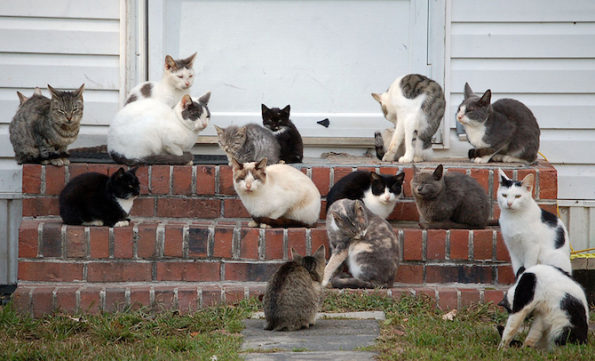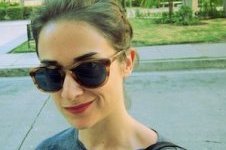Search
To search for an exact match, type the word or phrase you want in quotation marks.
A*DESK has been offering since 2002 contents about criticism and contemporary art. A*DESK has become consolidated thanks to all those who have believed in the project, all those who have followed us, debating, participating and collaborating. Many people have collaborated with A*DESK, and continue to do so. Their efforts, knowledge and belief in the project are what make it grow internationally. At A*DESK we have also generated work for over one hundred professionals in culture, from small collaborations with reviews and classes, to more prolonged and intense collaborations.
At A*DESK we believe in the need for free and universal access to culture and knowledge. We want to carry on being independent, remaining open to more ideas and opinions. If you believe in A*DESK, we need your backing to be able to continue. You can now participate in the project by supporting it. You can choose how much you want to contribute to the project.
You can decide how much you want to bring to the project.

I prepare breakfast: tea, yogurt and fruit. I turn on the radio. The sun peaks through the kitchen window. I sit down and read the news, I open my mail and there is a pile of newsletters about contemporary art events. Amongst them, over eighty-eight mornings was SUPERCOMMUNITY, the collection of online texts that the platform E-Flux published in parallel with this year’s edition of the Venice Biennale. Authors from diverse origins wrote texts of different types, in a variety of languages, all translated into English, sent free to a public that voluntarily subscribed to receive them. — I read Hiwa K, with his Notes on extratellectual (which we all want to be).
At the beginning there are just extracts accompanied by an image. These aren’t necessarily the beginning of the texts. You read rapidly, sipping your tea that is now going cold. At the end of the extract a link suggests you continue to read outwith your email, in the ecumenical space of the web dedicated to the editorial project. In the background, the radio plays. On clicking the link you enter into the archive where the editors have grouped the contributions by subject: supercommunity, corruption, cosmos, planetary computing, apocalypsis, politics of shine, the art of work, “art”, social commons, Cuba. Ten terms that populate the literature created by, and for, the members of the global contemporary art community, dislocated across diverse physical geographies and fortuitous encounters in the form of a biennale, congress, or festival. This literature surpasses paper, and includes emails, newsletters, catalogue essays, exhibition reviews, interviews with artists, curators, and collectors. It also encompasses the leaflets we pick up, the articles we read, and the conversations we have. What is the role of SUPERCOMMUNITY in an edition of the Venice Biennale openly articulated by text? — I read Liam Gillick, Weapons grade pig work.
Okwui Enwezor, curator and artistic director of this year’s Biennale, chose Das Kapital as the axis of his exhibition. Enwezor situated Marx’s text as the ultimate referent in the pieces selected and events organised within his programme. He wagered on a “post-Occidentalism” revising the crimes committed by the trio of culture-colonialism-capitalism since the massacres of Leopoldo II, when the Belgian pavilion, the first national representation in the Biennale, was constructed. Included as well in the list of participating artists, Marx today becomes the author not just of the sacred text of the show, but also of the broad community articulated globally around contemporary art – at least for this summer of 2015. But Althusser already warned of the need to read das Kapital in a fragmented and dislocated manner. His advice echoed the presence of worker-readers already within the text, a text describing the conditions of exploitation in which the reading took place. Instead of a monolithic reading, infinite voices stuck in their conditions of existence. What is more, this concession was made in the hope of facilitating the access of the working classes and consequently an embracing of Marxist rhetoric, determined by the ideological landscape of post-war France. Opposing orthodox theory with an accessible fragmented reading. As we see in the literature produced in and around biennales, different practices of subscribing to the belief also occur within the elites; and not for being elites do they save themselves from poor readings. I read Harun Farocki, On the documentary, that is never bad.
SUPERCOMMUNITY is a project directed by Julieta Aranda, Brian Kuan Wood, and Anton Vidokle. Situated on the web, it has been mirrored with events, conversations and readings in different locations. It has had a permanent physical representation in the Biennale. It is true to the editorial line of e-flux and includes critical stances in contemporary art theory and criticism. — I read the text by Jonas Staal, about the double corset of imperialism, national representation and iconoclastic fundamentalism. It’s windy.
If every edition of a biennale generates a specific image of the world around which orbit spiral devices that consolidate disparate narratives, floating images and vague references. SUPERCOMMUNITY is one of them. It facilitates an uncommitted, malleable reading in which the ideas uphold the curatorial discourse, akin to the variety of everyday, science fiction, contortions, myths of destruction, working ethics, and relations with the word ‘art’ present in the lives of each and every one of us who makes up this great global community of contemporary art. The SUPERCOMMUNITY also activates by making concrete the abstraction of Das Kapital with the first hand descriptions by eighty-eight people of instances of exploitation, technological determinism, or historical aberrations. The variety in the register of their texts, their voices, origins, and pleasures make the device more accessible for an increasingly broad and heterogeneous public, reluctant to scrutinize from start to finish the political economy of the German thinker. — I read Charles Stankievech, Supercritical decay.
A difficult central, canonical and ahistorical text, Das Kapital; eighty-eight contemporary adaptations, a pleasing, spectacular, SUPERCOMMUNITY. Together they configure a potent literary device that reinforces the curatorial discourse of an art exhibition, while swelling the ranks amongst disparate readers consolidating the hegemony of Venice in the rash of biennales. We’ve survived; here we are. The cycle is over but we’re still here, they said.

Paloma Checa-Gismero is Assistant Professor at San Diego State University and Candidate to Ph.D. in Art History, Criticism and Theory at the University of California San Diego. A historian of universal and Latin American contemporary art, she studies the encounters between local aesthetics and global standards. Recent academic publications include ‘Realism in the Work of Maria Thereza Alves’, Afterall, autumn/winter 2017, and ‘Global Contemporary Art Tourism: Engaging with Cuban Authenticity Through the Bienal de La Habana’, in Tourism Planning & Development, vol. 15, 3, 2017. Since 2014 Paloma is a member of the editorial collective of FIELD journal.
"A desk is a dangerous place from which to watch the world" (John Le Carré)